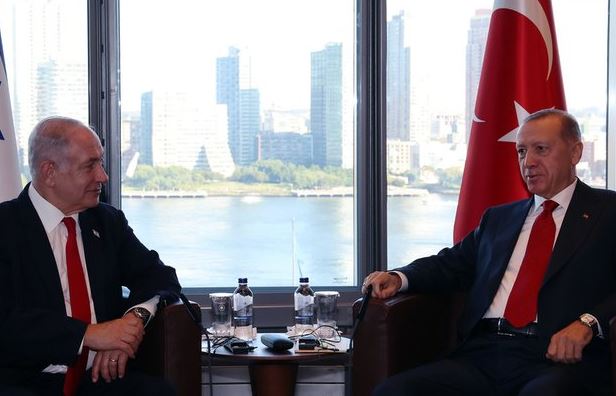ANKARA, November 13, 2024 – Turkish President Recep Tayyip Erdogan has declared an official severance of all diplomatic relations with Israel, labeling the ongoing conflict in Gaza and Lebanon as acts of “genocide.” This announcement comes in the wake of Erdogan’s diplomatic engagements in Saudi Arabia and Azerbaijan, where he underscored the urgent necessity for humanitarian aid and demanded an immediate ceasefire.
The decision by President Erdogan represents a significant shift in Turkey’s foreign policy, highlighting its commitment to supporting the Palestinian cause. This move not only reflects Turkey’s growing assertiveness in Middle Eastern politics but also indicates a strategic pivot towards aligning more closely with nations that share its critical view of Israeli policies.
This break in relations could have profound implications on the geopolitical landscape of the Middle East. Analysts suggest that Turkey’s actions might lead to a realignment of alliances, potentially affecting its standing within NATO and its interactions with other global powers.
Key Points of Turkey Cutting Ties with Israel:
Severance of Diplomatic Relations: Turkish President Recep Tayyip Erdogan has officially announced the end of diplomatic relations with Israel.
Reason for Break: The decision was made in response to what Erdogan describes as Israel committing acts of “genocide” in Gaza and Lebanon.
Humanitarian Focus: Erdogan emphasized the critical need for immediate humanitarian aid and a ceasefire in the region following his visits to Saudi Arabia and Azerbaijan.
Support for Palestine: This move underscores Turkey’s strong advocacy for the Palestinian cause, reflecting a deepening rift with Israel over the handling of the conflict with Palestine.
Geopolitical Implications: The severance is expected to significantly impact alliances and geopolitical dynamics in the Middle East, potentially influencing Turkey’s relations with NATO and other international entities.
Turkey’s Regional Strategy: By cutting ties, Turkey aims to bolster its relations with other regional powers who are also critical of Israel’s policies.



